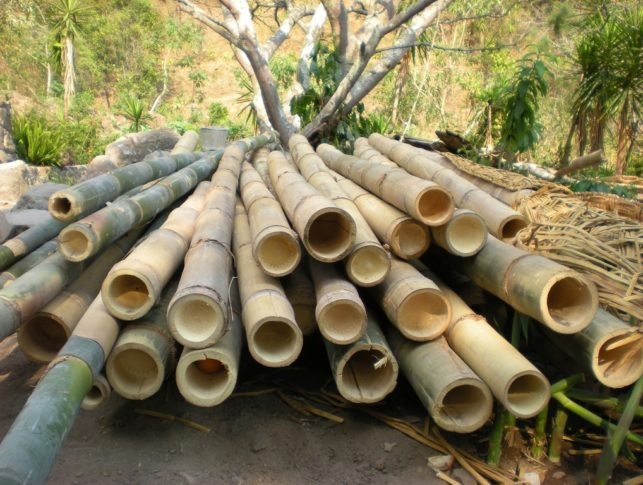
Various studies indicate that bamboo products are now gaining popularity in the international market. They are also contributing to foreign and domestic trade, as well as mass employment. Ethiopia is the largest bamboo grower in Africa. In short, it is estimated that the bamboo forest covers 1.47 million hectares of land. However, bamboo is one of the resources of Ethiopia that has not been tapped via producing various products in modern industry with bamboo inputs. The involvement of the private sector in this sub-sector is very minimal.
The International Bamboo and Rattan Organization is one of the leading organizations in the field of bamboo production in Ethiopia. The organization has been aggressively working in order to enhance bamboo development in various African countries such as Kenya, Uganda, and Ethiopia via devising projects. A few days ago, it provided training for professionals working in the financial sector with a view to raising awareness thereby resolving obstacles observed in the area.
The platform, which many important issues raised, is attended by the bank professionals and others in the financial institutions. Dr. Teshome Tamrat, Senior Forest Specialist at the Local Forest and Climate Change Commission are one among many professionals. He shared a few points towards the potential, status, impact in the country’s economy, the challenges facing so far and the opportunities.
How do you describe the potential and benefits of Ethiopia’s bamboo production?
Ethiopia is the largest bamboo producing country in Africa. It is estimated that bamboo covers an area of 1.7 million hectares. It accounts for 60 percent of Africa. However, bamboo resources have not been used in many ways. It is also being used in a traditional way. Not much has been done to make technology accessible to foreign and domestic markets. If we engage many industries and factories, the sector would have the potential to create more jobs and contribute greatly to increasing foreign income.
Ethiopia is importing a variety of bamboo products at a cost of up to 450 million USD. If we can invest in bamboo production assisted with state-of-the-art machinery, this foreign exchange can be saved. The bamboo product value chain is very low. It requires more tasks to integrate the product, the relationships, especially in the bamboo value chain, are very low. It requires a lot of tasks to connect where the product is, what we produce, what the industry needs, and to implement knowledge and technology-supported bamboo development.
What is being done to change this image?
The bamboo sector has received a lot of attention at the government level. In a forest policy that is approved in 2018, bamboo has been labelled as part of the forest and provides due support for it. In terms of the nature and benefits of bamboo, a strategy has been formulated and implemented equivalent to cotton and other agricultural products.
This strategy is valid for ten years. When it works for a decade, supervision is carried out every five years. To this end, various activities are being carried out to enable stakeholders to do their part to ensure a high level of bamboo exports and to replace imported forest products.
According to the strategy, it is planned to develop 54,000 new bamboo plantations within five years thereby covering 124,000 hectares in ten years. The commission has prepared 56 million hectares of land to be planted in all regions and city administrations this year. The plan is to develop 20,000 hectares of land every year. Preparation is carried out to identify the land suitable for it, allocating a budget for it.
It has often been said that the industry’s biggest challenge is lack of production, how serious is the problem?
Every product needs a standard. It is also imperative to rank bamboo products both for export and for sale domestically. Various investors also want to be promoted. The Local Forest and Climate Change Commission is responsible for this.
The commission is working with the Ethiopian Standards Agency to develop standards. In this regard, the commission has rated seven for importing bamboo products. Additional five products are expected to get standard in the year to come. However, this is not enough. An investor should not be forced to produce and store a product due to less performance of setting standards for a wide range of products. It has to be standardized, to export or sell bamboo products to the local market. We, therefore, have been working giving special consideration for it.
How much is Ethiopia benefiting from bamboo resources, especially in foreign trade, and how is its involvement in the international market?
Asia is the world’s largest exporter of bamboo. Ethiopia, on the other hand, is in the world market. Its share is less than one percent. It is zero point two percent. Some export unprocessed bamboo. This must change.
We need enough industries to participate in the global market. It is imperative that small, medium and large scale industries flourish. The actors also need to get the necessary financing, especially loans, to get into the business. Our products must also be varied.
The worst stumbling block in this regard is the owners’ skill gap. There are also limitations to creating new ideas. This needs to change. If necessary, bamboo can be widely produced.
It is rumoured that a new system called the Forest Fund will be implemented to promote bamboo development. What is a Forest Fund, and what are its benefits?
The Forest Fund is a financial hub that helps fund developers, especially to address problems with access to credit. In addition to the government’s lending services, it will also enable other stakeholders, especially private banks, to invest in and produce more.
Legislation and draft law have been submitted to the Council of Ministers through the Legislature. Developers will receive significant financial support after the proclamation of the Fund. Work is currently underway to enable various banks to play their part in further developing the product, especially in terms of interest and awareness.
In this way, it is possible to create a lot of potential for both the domestic market and the foreign exchange market, especially a large amount of foreign exchange. However, in terms of benefits, it should be supported by a proclamation and implemented as soon as possible.
What is the status of the African Bamboo Training Center, which is said to boost Ethiopia’s bamboo development?
In the past, we have been training at the China Innovation Center in collaboration with our Commission and the International Bamboo and Rattan Organization to increase bamboo skills. After training, they export their products here. To prevent this, the Chinese government has given a 56 million USD grant and allowed the establishment of the African Bamboo Training Center in Addis Ababa and an agreement has been signed at the national level.
Currently, the land is being sought in Addis Ababa in consultation with the Addis Ababa City Administration. If this can be achieved, the building will commence after Chinese experts do the necessary research. Special attention should be given to this by stakeholders who are working in the area.
As the training centre is located in Ethiopia, the country will have many benefits. Most African countries, including Ethiopia, do not go to other countries for training. It is easy to produce a large number of educated individuals in this field. Technology can be imported and used.
What are the future opportunities for the bamboo industry, and will there be incentives for both bamboo and private companies to develop bamboo?
There are many good opportunities for the development and use of bamboo. The Forest Proclamation provides an incentive for those engaging in the sector. When an investor enters the sector, the door is open to study.
A sustainable forest policy and bamboo strategy have been formulated and implemented for ten years. Investors from all walks of life are supported by policies and strategies to access other support and services, including land.
A person who cultivates bamboo can get land at the state and federal levels. Anyone interested in investing in bamboo will not only get land but will also be given a certificate to develop the land. Its products can be sold in local and foreign markets. Investors who cultivate bamboo may have no knowledge. They receive direct professional support from the federal to state and woreda structures.
There is also an incentive for developers, both individually and collectively. The encouragement, especially if it is a personal developer. It will also provide tax exemptions. It will have the support of any professional. All this is done to encourage bamboo development and investment.
Thank you for your extensive explanation.
It is my pleasure.
BY GIRMACHEW GASHAW
THE ETHIOPIAN HERALD SEPTEMBER 8/ 2021




